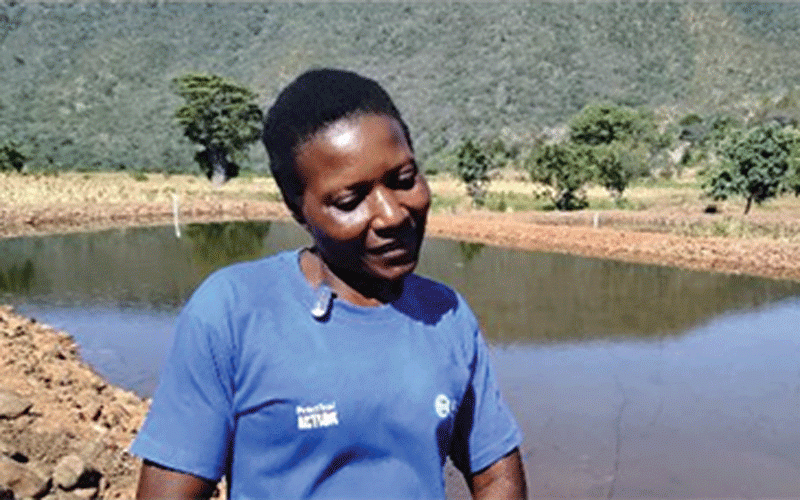
NYASHA Chibvuri (39) dropped to tears as she narrated the devastating effects of the Cyclone Idai disaster which ravaged Zimbabwe’s Eastern Highlands four years ago, leaving her and other villagers devastated.
Their only source of income, a fishpond at the heart of the village was not spared by the floods that also claimed the lives of hundreds of villagers and livestock, with thousands also displaced.
"It was a tough time for us, we thought that was the end of us, we were left with nothing," she recalled.
Despite the traumatic experience, Chibvuri who is now the chairperson of Mhandarume Irrigation Scheme in Chimanimani district, is relieved that the rehabilitation of village fishponds and nutritional gardens have come at the right time for her community.
Today, she leads a group of 71 horticultural farmers who are rehabilitating the irrigation scheme with financial support from United States Agency for International Development through Practical Action.
“We can’t fully explain the excitement among the members because fish is a popular delicacy here and a good source of protein for our families. We had suffered a huge setback because of the destruction to our garden and fishponds but now we have revived our source of food," she said.
Practical Action supported the group by rehabilitating nine fishponds and irrigation canals that were destroyed by Cyclone Idai-induced floods.
The fishpond rehabilitation initiative is accompanied by stocking them with 10 000 Mozambique Tipalia fingerlings, while the villagers are also supplied with the feed. Each of the eight fishponds has 1 000 fingerlings, while the breeding ponds are stocked with 2 000 fingerlings.
- Investing in fish farming
- How to start a fish farming business
- Developing a winning fisheries project
- Feature: Fishponds bring hope for Cyclone Idai victims
Keep Reading
To ensure sustainability of the project, farmers under the scheme have received training on fisheries and aquaculture.
“By December this year, at least a tonne of fish would have been delivered to the market. The thought of being able to feed my four children with improved nutrients, seeing them in decent clothing and being able to pay their school fees is a huge relief,” Chibvuri told NewsDay.
The fishponds had been idle for about four years and had turned into hibernation nests for pests which were now causing havoc in the villagers’ gardens.
The fishpond and nutrition garden rehabilitation programme involved laying new dam liners and re-establishment of irrigation pipes which were swept away during the cyclone.
“After the cyclone, the government reinstalled the irrigation pipeline, but there was no reinforcement along the riverbed. The uneven nature of the terrain reduced the water flow from the river until Practical Action assisted us with blasting of rocks to create a sloping gradient for the pipeline. The flow of water into the irrigation scheme and fishponds has significantly improved. The pipeline has been reinforced and secured with deformed bars drilled into granite rock. Now we are set for production," added Chibvuri.
She and other villagers are optimistic that the future of the project is now safe.
They are all eager to revive their fish selling business in a few months’ time.
Practical Action field officer John Muusha said fish has provided a good source of protein-rich food for family consumption, while villagers earned extra income from fish sales.
"Unemployed people get working opportunities and eke a living out of fish farming," said Muusha.
"Fish farming has also helped the proper utilisation of available water resources in the community. Fish is also easier to keep compared to other animals as it reduces environmental disturbance in the community. It also puts less stress on the ecosystem and equally reduces human interference. Fish farming is going to increase the community income and their savings.”
The Resilience Building for Chimanimani Communities project aims to bring back the resilience of communities affected by flooding and drought.
The project is benefitting more than 30 000 people in selected wards of Chimanimani district.
Although she is still nursing emotional wounds caused by the Cyclone Idai-induced floods, the rehabilitation of Mhandarume Irrigation Scheme has brought smiles on the faces of Chibvuri and other villagers in Chimanimani.









